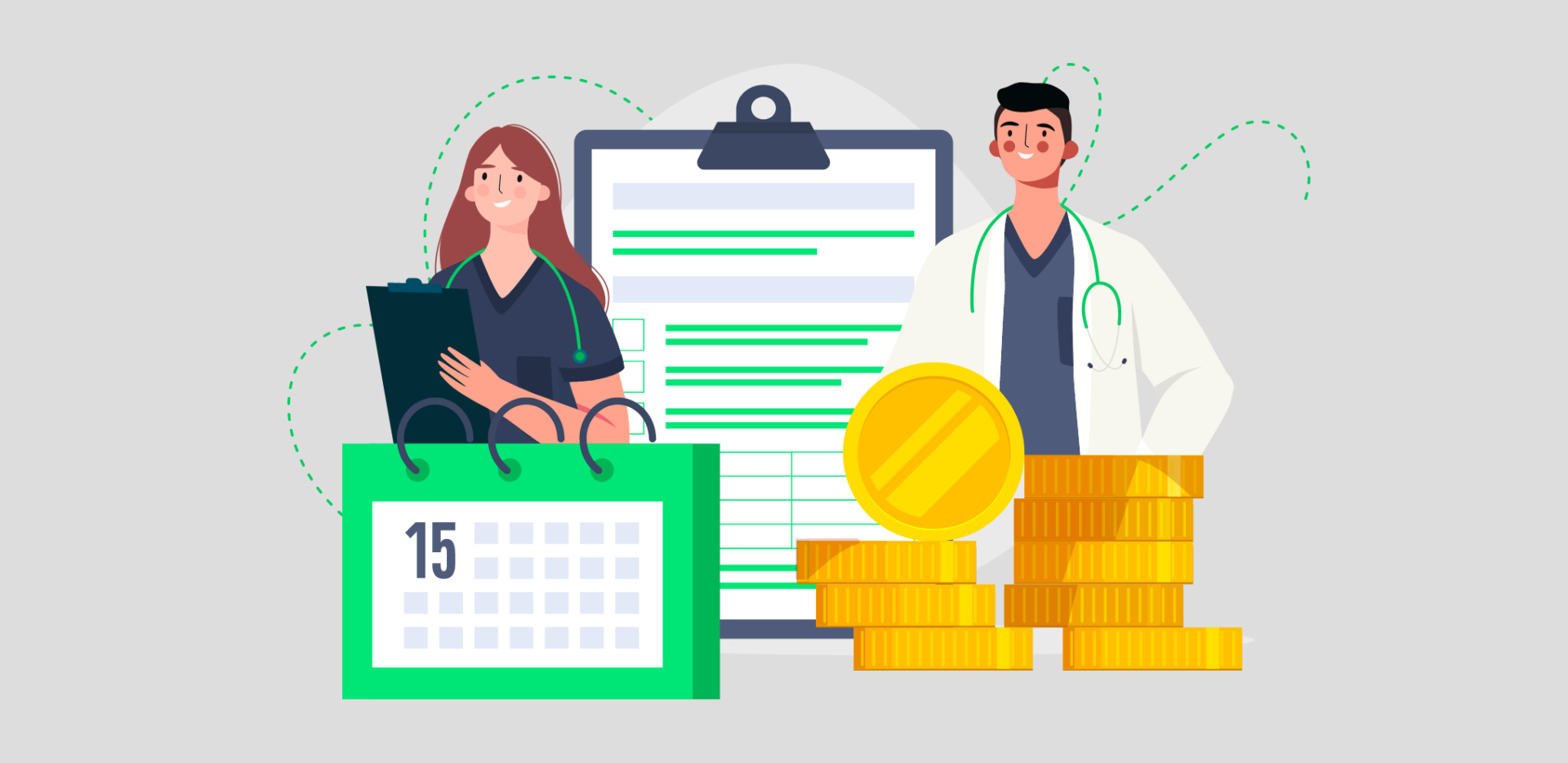Good tax planning is crucial for locum tenens providers. But as anyone who has ever juggled multiple 1099 forms can tell you: it can be complicated.
From understanding tax obligations to maximizing deductions and managing 1099 tax preparation, we’ve compiled tips and strategies to help locum tenens providers understand compliance with tax laws, navigate the complexities of tax season and maximize their financial well-being.
Check out our ten essential tips for locum tenens providers this tax season:
1. Be Proactive!
We get it––no one likes thinking about taxes. But being proactive about tax management can be the difference between owing thousands of dollars on your taxes at the end of the year, or optimizing your financial outcome. That’s why it’s so important to be proactive and start planning early when it comes to filing your taxes.
2. Hire a Professional
A qualified accountant––especially one that has experience working with locum tenens providers––can help you navigate the complexities of your taxes, and get the best deduction possible. We recommend looking for an accountant that specializes in healthcare, to ensure compliance and maximize your tax savings. Not sure where to look? Try asking one of your fellow locum providers for their recommendation!
3. Get an Understanding of your Tax Obligations
As 1099 employees, locum tenens providers are responsible for understanding Medicare and Social Security taxes. Unlike W2 employees, who have those amounts taken directly out of their paycheck by their employer, locums providers have to account for these funds themselves. As a locums provider, you may also be subject to other tax obligations, like self-employment taxes, or estimated tax payments (more on that below!). A qualified accountant can help you understand and navigate these various obligations.
4. Set up Estimated Tax Payments
If you owe $1,000 or more in taxes, and/or if locums work is your primary source of income, you will likely also be required to pay quarterly taxes: estimated tax payments that independent contractors must pay every four months. You must make your quarterly estimated tax payments by the due date, which is generally on the 15th of April, June, September, and January––otherwise, you’ll be on the hook for a penalty, which is usually 0.5% of the amount unpaid for each month the tax isn’t paid.
5. Maximize Your Deductions
It’s not all about the taxes you owe: as a locums provider, you are eligible to deduct any work-related expenses from your taxes, including but not limited to:
- Any travel expenses that haven’t already been reimbursed;
- Licensing fees and board exam fees;
- Cell phone bills;
- Health insurance payments;
- Unreimbursed mileage
6. Keep Accurate Records
Because there are so many things to keep track of, it’s especially important for locum providers to maintain detailed records of income, expenses, and deductions throughout the year. This will help you to facilitate tax preparation and avoid errors that will cost you. Be sure to scan and save any work-related receipts––you can do this easily through a receipt scanning app––and keep a spreadsheet to track income and expenses.
7. Plan for Retirement
As independent contractors, locum providers can’t rely on an employer’s retirement benefits or matching program. That means it’s up to you to make sure you’re saving for retirement. The good news is that contributing to retirement accounts such as IRAs and Solo 401(K) plans can offer you significant tax advantages! Your accountant can help you figure out how to maximize your savings and use what you save to lower your tax burden.
8. Invest in a Health Savings Account (HSA)
Similarly, investing in a Health Savings Account (HSA) is a great call for locum tenens providers, as it offers a way of paying for qualified medical expenses through tax-free withdrawals. Like your retirement account, it can also potentially lower your tax burden by offering deductions for contributions towards your HSA.
9. Consider your Tax Withholding Implications
To minimize your tax burden as an independent contractor, it’s important to be intentional when choosing your tax withholding allowances. Your withholding allowances will depend on your specific situation (whether you have dependents, file jointly with your spouse, etc). Your accountant can help you find the best balance for you, and you can adjust your withholding allowances on Form W-4.
10. Stay Informed
The tax code is always changing, so it’s important to stay up to date on the changes to tax laws and regulations that can have an impact on your tax planning strategies. That’s also why it’s helpful to hire an accountant that has experience working with people in the healthcare field, and locum tenens providers in particular. They can help keep you up to speed on any changes that are relevant to your situation.



